Graham Reid | | 4 min read
Odetta: Chilly Winds
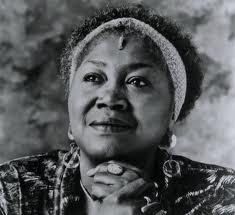
Folk singer Odetta has kept her sense
of humour about the 15 year lull in her recording career.
“I’ve just been practicing,"
she says, but is delighted by at last having another record out there
in the marketplace.
Despite her acclaim by audiences as far
spread as Russia and Nigeria and accolades by Yale University, the
album came about through a small personal contact.
“About 18 months ago I played a
concert in Madison, Wisconsin, at the invitation of a local doctor
Liz Carlin. She wanted to put on concerts there of artists she wanted
to hear, and invited me. I did it and she said next time we should
record it.
“She did all the research on what
microphones to use and worked at a women’s festival to practice.
"So I went back to Madison and did
another concert which we recorded, and it’s out now through Flying
Fish on Liz’ own label. It's called Moving It On.”
For Odetta, whose previous albums were
on the well known Vanguard, Tradition and Fantasy labels to be
recording again was a personal lift which she feels coincides with a
renewed interest in folk/blues music worldwide.
“I had years of depression through
not understanding how people in the record industry were thinking.
Then a song came to me called Hit or Miss, which was saying whatever
they did or didn’t do I was still here, still working and still
helping groups who are making this planet a better place.
"But now I get the sense there’s
something happening all over again. The music industry moguls see
things happening in some neighbourhoods so they put the spotlight on
that area and people hear it."
At 59, Ode has been around long enough to see the fashions in the music industry change many times and in the early Sixties was swept into prominence when the folk boom put the spotlight on people like Pete Seeger, the young Bob Dylan and herself.
Ironically, she became a folk singer by
chance. She was 19, acting in a production of Finian's Rainbow, when
she first heard the raw sound of the black folk tradition.
"The area of songs that got me the
deepest were prison work songs. When I sang them I seemed to get rid
of some of my own hate and anxiety through those songs. What also got
me were the Appalachian songs, their love and story songs.
“Through those song I controlled my
feeling of rage and got to a place where I was comfortable with
myself.
“I also found through the words a
history of blacks which hadn’t been in movies, papers or history
books. And today when I'm singing these things in schools I’m aware
the history told is of robber barons, politicians and crooks. But I
sing of regular people.
“I guess I’m an ancestor
worshipper.”
Over 16 albums Odetta explored gospel,
blues, jazz and folk traditions, performed alongside the major
artists of the time and has continued her long associations with
civil rights.
Despite not having an on-going
recording career, she has been far from inactive. She travels widely
(after her New Zealand concert she is off to New York, Italy,
Germany, the Newport Folk Festival and dates in Canada) and picks up
excellent reviews.
She is also a grass roots performer who
plays small venues and, as she says, enjoys going into schools as
much as concert halls.
She is concerned young blacks today are
still shut out of their heritage and sees radio as having closed the
doors on history.
“My kind of music is not on radio, so
that’s why I go into schools. I go there for the blacks, the
Chinese, Mexicans and whites to let them know there’s something
outside radio.
"And, the children are thoroughly
fascinated, first by seeing one lady on a stool with a guitar and
that’s all. I get them to sing along and it‘s wonderful. But
music has largely been relegated to an entertainment industry."
But quite how folk/blues songs click
with the crack generation is a difficult point.
“What I sing about doesn’t deal
with the problems of this generation in terms of being topical, but
it speaks to the basis of us as human beings. The young people today
are dealing with the breakdown of culture and contradictions. The
crack situation is the contradiction of confusion and power.
“This time we live in is a time of
not caring as long as someone makes their money.
"I deal with the basis of us all -- and that is us as caring human beings.”
Odetta died in 2008 at age 77. See here for an account of the strange show she played in Auckland in '89.

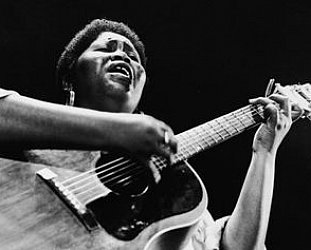
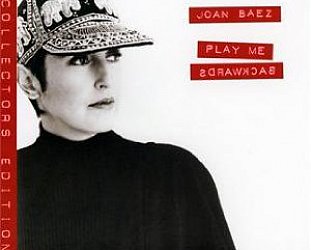
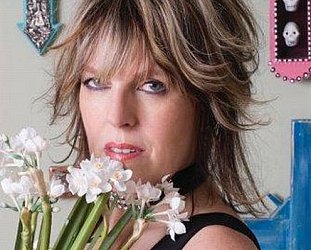
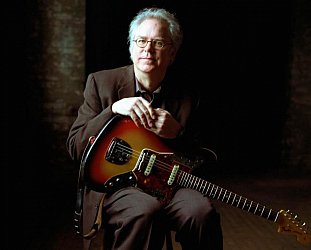


post a comment